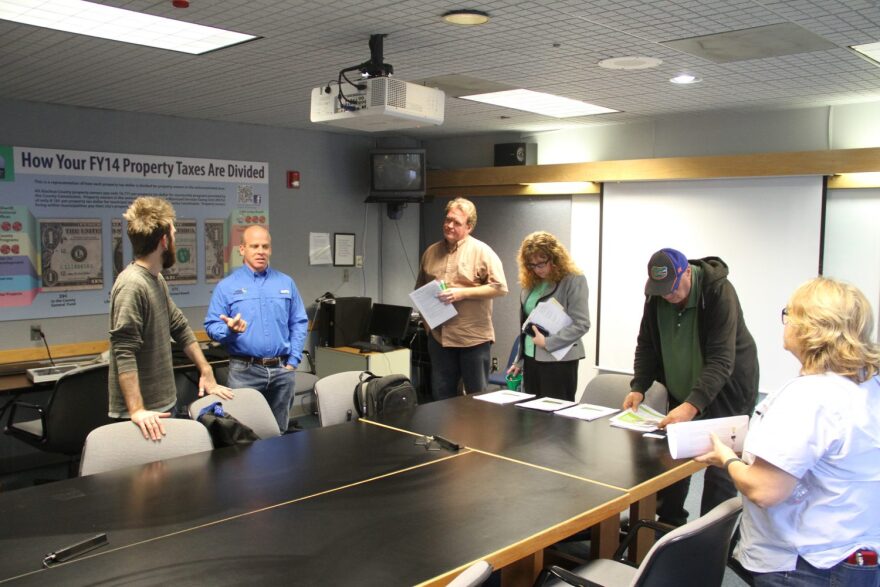In a dimly lit room, 11 people gathered Wednesday in downtown Gainesville to talk about the sun.
Eric Cunningham was one of the people present, hoping to learn more about solar energy so that he might begin installing solar panels on his house.
“I’ve been toying around with the idea of getting a solar (power) system for a long time,” Cunningham said. “Based on the rough numbers that they presented for an average system, there’s really no reason not to get one.”
As part of a series of “Lunch and Learn" events, the Alachua County Office of Sustainability hosted an hour-long informational talk about the benefits of solar power noon at the Alachua County Administration Building. Barry Jacobson, president of Gainesville-based Solar Impact, led the discussion about costs, benefits and future prospects of solar power.
In addition to the three Solar Impact employees, eight other people attended, including six Alachua County employees. After the event, some people spoke with Solar Impact employees about adding solar power to their residences.
Cunningham stayed afterward to schedule an evaluation of his property for that day.
Earlier, during his talk, Jacobson stressed that solar power systems ideally pay for themselves over time. In some cases, when units produce more energy than the house consumes, customers are eligible for a credit on their bill for the excess energy, called “net metering.”
With the rising cost of energy bills, solar power can help reduce the amount homeowners pay by providing a low fixed rate for the energy they produce, he said.
Jacobson gave an example of the high costs that some people face that could be mitigated by solar power.
“I was talking to a builder; he has a very large house. But he had a heat pump on his swimming pool, and he left it on one month, the whole month,” Jacobson said. “He said he got the power bill from GRU, [and] it was $6,000. I said, ‘That’s outrageous.' He said, ‘Yeah, normally it’s not more than $5,200.’”
In addition to lower energy bills, taxpayers may receive a 30 percent federal tax credit of expenditures for a system, according to the U.S. Department of Energy website.
Initial cost and assembly were not the largest hurdle that solar power faces, Jacobson said.
“The biggest barrier is actually education,” he said. “Studies over and over show that over 90 percent of Americans want solar, but having been out there, I can tell you that well over 90 percent of Americans don’t know what solar is."
According to Jacobson, the solar panels are guaranteed by the manufacturer for 25 years, but they typically last 30 to 40 years.
After Solar Impact’s presentation and questions and answers, informational leaflets about Solar Impact and solar power were available to attendees, as well as business cards.
"It kind of seems like a no-brainer," Cunningham said of solar energy.
Solar Impact was the only solar power provider to present at the event. The company's clients include the Alachua County Library District and Alachua County Public Schools.
Alachua County Program Development Specialist Rachel Wayne explained that Solar Impact’s involvement was educationally based.
“Solar Impact is one of our community partners, and so this relationship has been cultivated over time based on their previous work here, based on some of their appearances at commission meetings — for example, to talk about policy, to talk about projects that could be brought here,” Wayne said. “We do want to emphasize the educational aspect (of their appearance Wednesday).”
Another “Lunch and Learn” event will be hosted Feb. 10 and will cover options for people to prepare meals and grow produce in a way that limits carbon emission. For more information about the series, call 352-264-6986.

